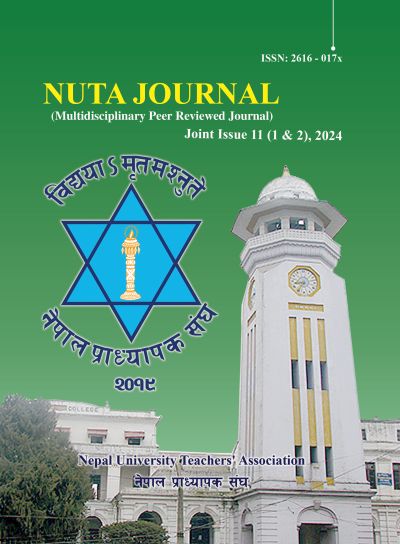Impact of Political Conflict on Democratic Reform: A Global Perspective
DOI:
https://doi.org/10.3126/nutaj.v11i1-2.77022Keywords:
accountability, democratic reform, dialogue, grievances, institutions, participation, , political conflictAbstract
The Complex and Multifaceted Interaction between Political Conflict and democratic reform As part of their argument, this paper analyses the inter-relationship between political divisions and democracy, discussing how political conflict can potentially be both a driver of democratic progress and a risky destabilizer. It explores forms of political conflict and their origins, from peaceful protests to violent uprisings, and their sources, whether socio-economic grievances, identity-based divisions, ideology-based divergences, or institutional weakness. It elucidates how conflict can spur political participation, reveal institutional failings, encourage dialogue and compromise, and increase accountability, all of which will push democratic reform. However, the piece admits it can also have downsides, from political polarization, at least in the short run, to gridlock and the erosion of trust in democratic institutions. The assessment emphasizes that conflict needs to be managed constructively through sound institutions, inclusive dialogue, and addressing deep-seated grievances in the long run. It reflects the need for a finer-grained understanding of political conflict dynamics, emphasizing the importance of each person's role in navigating democratic reform in an increasingly interdependent and polarized world.
Downloads
Downloads
Published
How to Cite
Issue
Section
License
© Copyright by NUTA JOURNAL
All Rights Reserved. No part of this Journal may be reproduced in any form or by any electronic or mechanical means, including information storage and retrieval system without prior permission in writing from the publisher, except by a reviewer who may quote brief extracts while reviewing.

